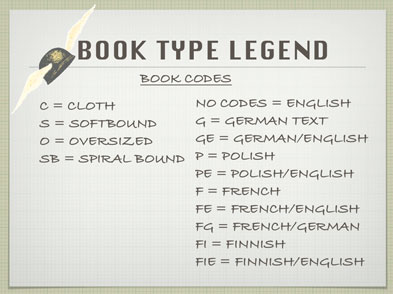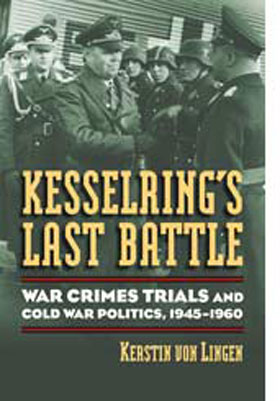
PRODUCT SEARCH
Free Shipping on orders of 8 or more books.
Applies to US Shipments only.
|
Shopping cart is empty.
|
KESSELRING'S LAST BATTLE WAR CRIMES TRIALS AND COLD WAR POLITICS 1945 - 1960
Book Type: C By Kerstin Von Lingen. In 1947 German Field Marshal Albert Kesselring was tried and convicted of war crimes committed during World War II. He was held responsible for his troops having executed nearly 9,000 Italian citizensâwomen, children, elderly menâin retaliation for partisan attacks. His conviction, however, created a real dilemma for the United States and western Europe. While some sought the harshest punishments available for anyone who had participated in the war crimes of the Nazi regime, others believed that the repatriation of alleged war criminals would help secure the allegiance of a rearmed West Germany in the dangerous new Cold War against the Soviet Union. Kerstin von Lingenâs close analysis of the Kesselring case reveals for the first time how a network of veterans, lawyers, and German sympathizers in Britain and America achieved the commutation of Kesselringâs death sentence and his eventual releaseâreinforcing German popular conceptions that he had been innocent all along and that the Wehrmacht had fought a âclean warâ in Italy. But von Lingen shows that Kesselring bore much greater guilt for civilian deaths than had been proven in courtâand that the war on the southern front had been far from clean. Von Lingen weaves together strands of the story as diverse as Winston Churchillâs ability to mobilize support among British elites, Basil Liddell Hartâs need to be recognized as an important military thinker, and the Cold War fears of the âSenatorsâ Circleâ in the United States. Through this rich narrative, she shows how international politics shaped the trialâs proceedings and outcomeâas well as the memory and meaning of the war for German citizensâand sheds new light on the complex interplay between the combatantsâ efforts to âmaster the pastâ and the threatening state of international relations in the early Cold War. In analyzing the efforts to clear Kesselringâs name, von Lingen shows that the case was about much more than the fate of one convicted individual; it also underscored the pressure to wrap up the war crimes issueâand German guiltâin order to get on with the business of bringing a rearmed Germany into the Western alliance. Kesselringâs Last Battle sheds new light on the âpolitics of memoryâ by unraveling a twisted thread in postwar history as it shows how historical truth is sometimes sacrificed on the altar of expediency. 448 pp. 
|


